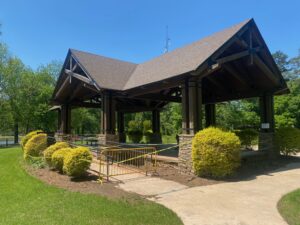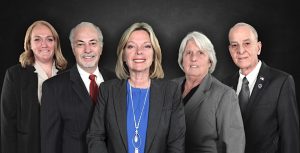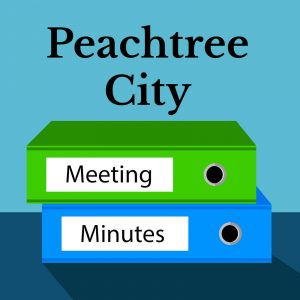The Peachtree City Council on July 30 is set to adopt a $33.5 million budget for FY 2016. A consensus at the July 8 budget workshop saw the council agreeing to a recommended budget that will come with no millage increase, no across the board employee raises and the use of a more conservative $769,000 in reserves to bolster needed paving expenses.
With no millage increase and no across the board raises for city employees in the offing, the main decision remaining was to determine the paving service level, interim City Manager Jon Rorie told the council at the July 8 workshop.
The council agreed nearly unanimously with the recommendation of Rorie and Finance Director Paul Salvatore to adopt the $33.519 million budget later this month. The use of the smaller $769,000 in reserves was recommended to protect cash reserves.
“What you’re showing here I really like,” said Councilman Eric Imker.
As proposed, the budget was one of three options, with Councilman Mike King questioning if the second option might not be preferable. That option would increase expenditures to $33.75 million and would allow for an additional $1 million to be allocated for paving rather than the $769,000 for additional paving as outlined in option one.
Street resurfacing is an issue that the council has previously identified as a significant need. The selection of option one with no millage rate increase and using the more conservative $769,000 in reserves would provide $2 million resurfacing and would include more than 5 miles of paving work.
Rorie noted that there could be cost savings within that amount given that some streets could be addressed by patching and sealing rather than by full-depth reclamation.
Rorie and Salvatore recommended going the more conservative route by using the $769,000 amount in reserves as opposed to the other options that would increase the amount of reserves used to either $1 million or $1.3 million and thus increase the funding available for added paving work. Dovetailing into the discussion was the topic of expected revenues for FY 2016 that begins in October.
Budget revenues were based on a 7.7 percent increases in funds. That figure was potentially conservative since property values in the city were projected last month to show a 10 percent increase. If the actual property increase was closer to 9 it would make option two feasible since more revenue would be generated, King said.
Salvatore said he hoped to have the exact tax digest figures in the coming weeks. In the mix are other revenue sources such as vehicle taxes and sales tax that will need to be evaluated, which were part of the reason for the more conservative approach provided by option 1.
In terms of the millage rate, the FY 2016 will have no increase. The three options showed the potential for a .25-mill jump for FY 2017 using option 1, a .35-mill increase using option two and a .5-mill increase under option three. Both Salvatore and Rorie noted that, depending on revenue sources and expenses, an increase could be pushed back to 2018 or beyond.
Once adopted, the FY 2016 budget will maintain a reserve level of 33 percent, well above the 25 percent required by the city.
The council at previous meetings had agreed that the budget would not include an across the board employee rate increase, though it would add one detective position in the police department, increase the golf cart registration to an annualized $15 per year and would include $114,000 in employee merit increases.
As set to be adopted, the budget would provide for $225,000 for cart path work, some of which could be offset by the increase in cart registration fees, and the potential for $155,000 to be dedicated to short-term traffic improvements and engineering plans for areas such as MacDuff Parkway and Planterra.
While the millage rate will not increase, the budget to be adopted on July 30 will technically be a tax increase since property values have increased over last year.
The budget is expected to be adopted at a July 30 called meeting.













Leave a Comment
You must be logged in to post a comment.